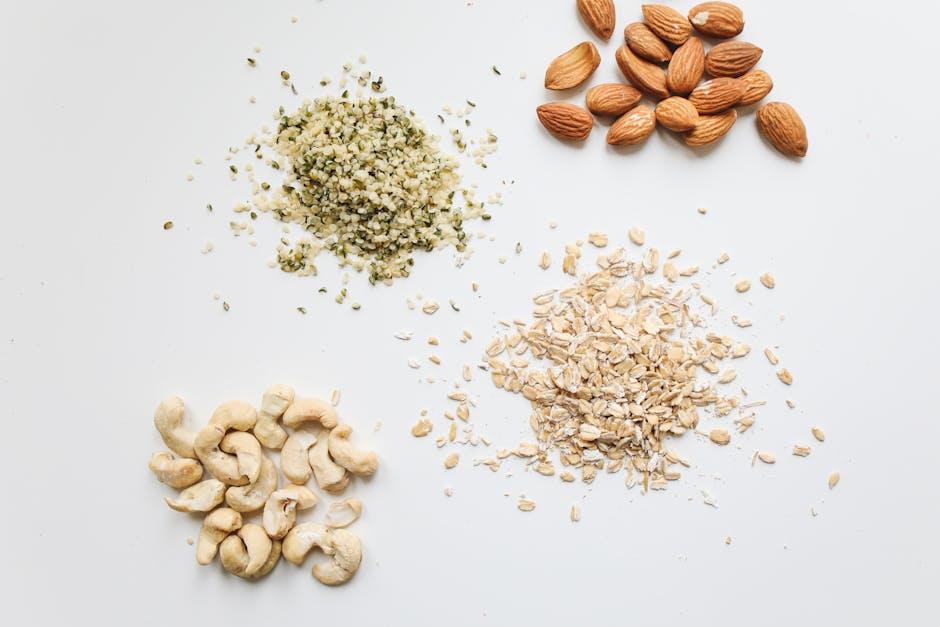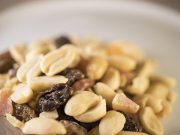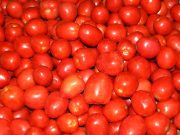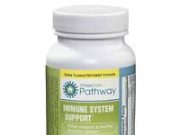In today’s fast-paced world, finding time to prepare nutritious meals can be a daunting task. As our schedules become more demanding, many of us turn to convenient alternatives like protein powders and meal replacement shakes to meet our dietary needs. However, amidst the array of choices, understanding the distinct purposes and benefits of these products can be confusing. Whether you’re looking to support muscle growth, lose weight, or simply maintain a balanced diet, it’s important to know the differences between protein powders and meal replacement shakes. This guide is here to help navigate the nuances, keeping your unique health goals and lifestyle in mind, so you can make informed decisions that nourish both your body and peace of mind.
Understanding the Basics of Protein Powders and Meal Replacement Shakes
Distinguishing between protein powders and meal replacement shakes can help guide you to choose the right supplement for your lifestyle. Broadly speaking, protein powders are formulated primarily to enhance dietary protein intake. They are admirable companions for those seeking muscle growth or repair, often essential in the regimen of fitness enthusiasts and athletes. On the other hand, meal replacement shakes are designed to substitute a complete meal, offering not just protein, but also a balanced blend of carbohydrates, fats, vitamins, and minerals.
| Protein Powder | Meal Replacement Shake |
|---|---|
| High in Protein | Balanced Macronutrients |
| Low in Carbs | Includes Vitamins & Minerals |
| Supports Muscle Growth | Substitutes a Meal |
When selecting between these two, consider your personal goals and lifestyle needs. If you’re focused on building muscle or supplementing your protein intake, protein powders might be your go-to. Whey protein, for example, is highly recommended for muscle recovery post-workout. For individuals seeking weight loss or convenience with a nutritionally complete package, meal replacement shakes can be a practical solution, enabling you to manage caloric intake while ensuring nutrient adequacy. Remember, whichever you choose, it’s essential to integrate them into a well-rounded diet for optimal results.

Nutritional Comparison: Evaluating Ingredients and Health Benefits
Understanding the nutritional distinctions between protein powders and meal replacement shakes can help you make informed dietary choices tailored to your lifestyle and fitness goals. Let’s delve into the key ingredients and health benefits of each option.
| Component | Protein Powders | Meal Replacement Shakes |
|---|---|---|
| Protein Content | High | Moderate to High |
| Vitamins & Minerals | Low | Enriched |
| Caloric Intake | Low | Moderate |
| Fiber Content | Low | Moderate |
| Fats & Carbohydrates | Minimal | Balanced |
Protein powders are primarily designed for individuals seeking to boost their protein intake without consuming excess calories. They serve as an efficient post-workout supplement, aiding in muscle recovery and growth. Common ingredients include:
- Whey, Soy, or Pea Protein
- Minimal Carbohydrates and Fats
- Limited Vitamins and Minerals
In contrast, meal replacement shakes provide a more comprehensive nutritional profile, making them suitable for those needing a convenient meal on-the-go. They are crafted to deliver a balance of macronutrients and essential vitamins and minerals, often including:
- Moderate levels of protein from various sources
- Additional dietary fiber
- A blend of essential vitamins and minerals
- Healthy fats and carbohydrates for sustained energy
Ultimately, the selection between these two options depends on your specific dietary goals and lifestyle needs. Whether you’re looking for a quick protein boost or a balanced meal replacement, understanding these differences can guide you in making the best choice for your health journey.

Choosing What’s Best for Your Goals: Tailored Advice for Fitness Enthusiasts and Weight Management
Understanding the difference between protein powders and meal replacement shakes can make a significant impact on your fitness and weight management journey. Both options cater to unique needs, and selecting the right one requires a clear alignment with your personal objectives.
Protein Powders: Primarily used by those focused on muscle gain or maintenance, these supplements offer concentrated doses of protein. They are ideal for:
- Post-workout recovery: Help repair and build muscle after intense training.
- Supplementing protein intake: For individuals not getting enough protein from their diet alone.
- Caloric control: These often have fewer calories due to minimal added ingredients.
Meal Replacement Shakes: These are designed to substitute an entire meal while providing a balanced array of nutrients. They are beneficial for:
- Weight management: Controlled portions can aid in regulating caloric intake.
- On-the-go nutrition: Convenient for those with a busy lifestyle that limits meal prep time.
- Balanced nutrition: Typically contain carbs, fats, vitamins, and minerals alongside protein.
| Feature | Protein Powders | Meal Replacement Shakes |
|---|---|---|
| Caloric Content | Lower | Higher |
| Nutritional Balance | Focused on Protein | Comprehensive |
| Primary Use | Muscle Recovery | Meal Substitute |
By clearly defining your goals—whether it’s building muscle, managing your weight, or simply managing a busy lifestyle—you can choose which option better supports your journey. Consider incorporating one, or even a mix of both, based on your daily requirements and lifestyle demands. Remember, personalization is key to achieving sustainable health and fitness outcomes.

Smart Tips for Incorporating Protein Powders and Meal Replacement Shakes into Your Routine
Integrating protein powders and meal replacement shakes into your daily regimen can be a game-changer for both energy balance and nutrient intake. Here are some smart ways to embrace these nutritional powerhouses:
- Discover what works for you: Start by understanding your unique dietary needs. If you’re primarily looking to build muscle, opt for a protein powder rich in essential amino acids. For those aiming for wider nutritional coverage or weight management, a meal replacement shake may be more appropriate.
- Create a routine: Consistency is key. Aim to consume your chosen supplement at similar times each day, such as post-workout or as your lunchtime substitute. This helps in establishing a habit and optimizing bodily absorption.
- Experiment with combinations: Enhance flavors and nutrients by blending protein powders or meal replacement shakes with fruits, vegetables, and nuts. This not only diversifies your diet but also keeps your taste buds excited.
| Criteria | Protein Powders | Meal Replacement Shakes |
|---|---|---|
| Main Purpose | Muscle Building | Nutrient Replacement |
| Caloric Content | Generally Low | Moderate to High |
| Ease of Use | Highly Customizable | Convenient One-Step |
Remember, variety is the spice of life, and staying flexible with options ensures that your nutritional supplementation remains both effective and enjoyable.
Future Outlook
navigating the choice between protein powders and meal replacement shakes ultimately comes down to your unique lifestyle, nutritional needs, and personal fitness goals. Both options offer valuable benefits and can support your journey toward better health and wellness, but understanding their differences is key to making an informed decision. Remember, protein powders are primarily designed to boost your protein intake, crucial for muscle growth and recovery, while meal replacement shakes aim to provide a more balanced array of nutrients as a convenient alternative to traditional meals.
As you consider which option is right for you, reflect on what your body needs and how each product fits into your daily routine. Maybe even consult with a healthcare professional or nutritionist to guide your choices if needed. At the end of the day, choosing the right supplement can play a vital role in maintaining a healthy balance within your diet, but it’s essential to remember that these products are just one part of a holistic approach to wellness. Listen to your body, honor its needs, and trust yourself to make choices that support your health and happiness.








































